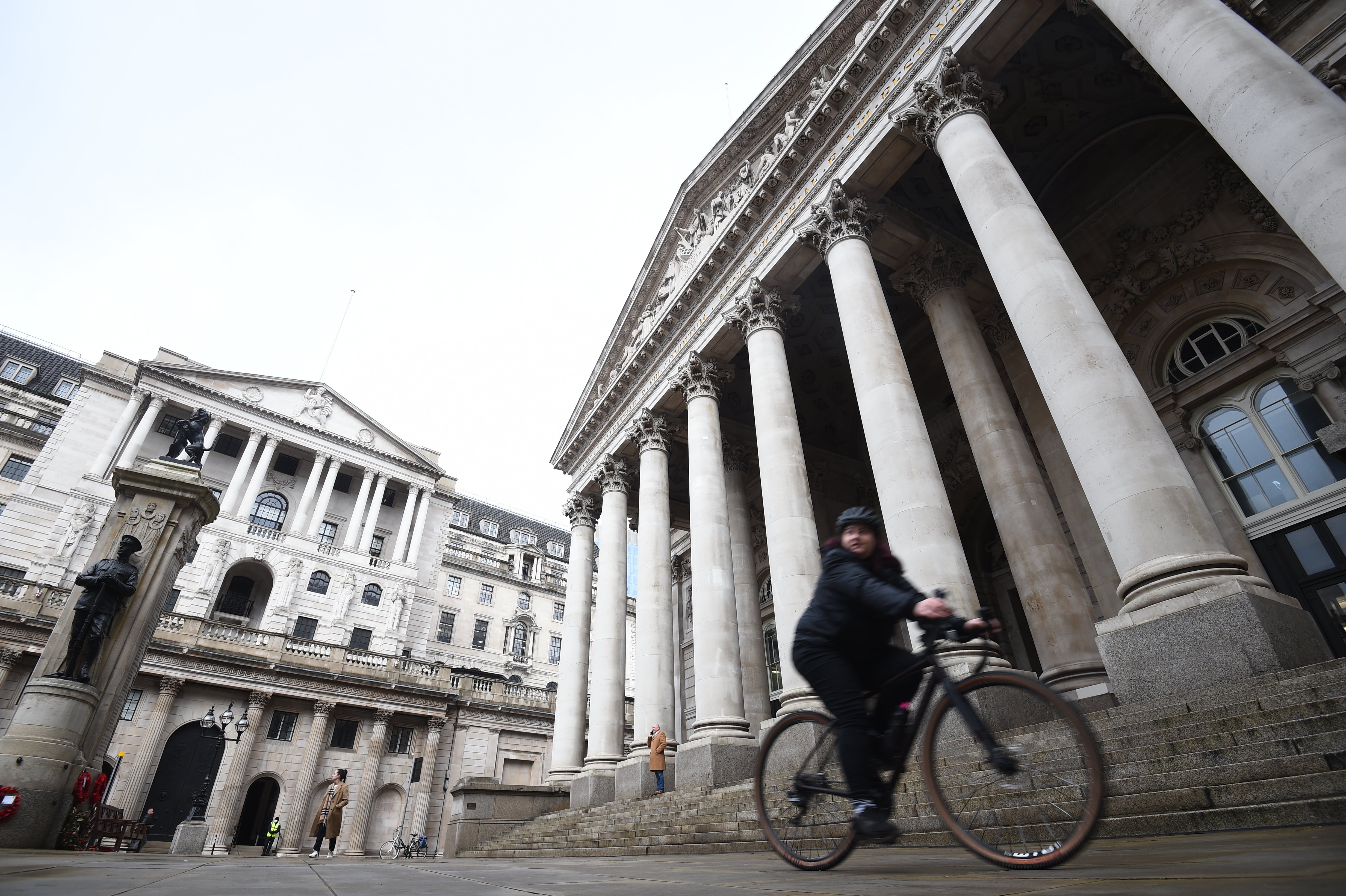Omicron and new restrictions raise prospect of Bank holding rates once more
Bank of England policymakers will have to weigh up the threat of the new variant against soaring inflation in Thursday’s interest rate vote.

Your support helps us to tell the story
From reproductive rights to climate change to Big Tech, The Independent is on the ground when the story is developing. Whether it's investigating the financials of Elon Musk's pro-Trump PAC or producing our latest documentary, 'The A Word', which shines a light on the American women fighting for reproductive rights, we know how important it is to parse out the facts from the messaging.
At such a critical moment in US history, we need reporters on the ground. Your donation allows us to keep sending journalists to speak to both sides of the story.
The Independent is trusted by Americans across the entire political spectrum. And unlike many other quality news outlets, we choose not to lock Americans out of our reporting and analysis with paywalls. We believe quality journalism should be available to everyone, paid for by those who can afford it.
Your support makes all the difference.The Bank of England may hold off from raising interest rates once more on Thursday due to Omicron fears and new restrictions to control the spread of the virus, according to experts.
Having taken financial markets by surprise when it kept rates unchanged in November, the Bank had been widely expected to press the button on a rise from 0.1% to 0.25% this month to rein in soaring inflation.
But many economists and investors believe the recent emergence of the variant and the Government’s move to impose new restrictions in response has increased the likelihood that the Bank will once more wait and see before taking action.
Economic growth could be impacted, albeit not on the scale seen in full-scale lockdowns, while there are fears that further restrictions may be necessary if the variant proves more dangerous.
Figures last week showed growth is already slowing sharply, to 0.1% in October down from 0.6% in September, even before the impact of Omicron.
The rates decision is set to be a close call among policymakers on the Monetary Policy Committee (MPC), however, with some economists believing a hike could still be on the cards given rampant inflation.
The latest official figures showed inflation hitting 5.1% in November – its highest level for more than a decade – as prices rose across the board.
Martin Beck, chief economic adviser to the EY Item Club, said: “New restrictions globally threaten to hold up supply chains even more, while consumers and businesses could reasonably be expected to become more cautious to spend.
The case for the MPC to not raise Bank Rate this year and wait and see how the economic landscape looks when it next meets in February 2022 is a strong one
“If Omicron’s economic impact were to prove more significant than expected, an interest rate rise in December’s meeting might have to be quickly reversed.
“Given this, the case for the MPC to not raise Bank Rate this year and wait and see how the economic landscape looks when it next meets in February 2022 is a strong one.”
Allan Monks at JP Morgan said he believes the latest restrictions could knock monthly economic output by around 0.5% in December and January.
This comes on top of supply chain troubles, which are already hampering the UK economic recovery.
But the Bank faces a difficult balancing act as pressure builds on it to help bring inflation back to the 2% target.
Bank governor Andrew Bailey said last month he wanted to see more evidence that the end of the furlough support scheme had not pushed up unemployment significantly before hiking rates.
Jobs data on Tuesday confirmed a buoyant labour market and rising wages, which may prompt some policymakers to set aside Omicron worries and vote to increase rates.
Experts at BNP Paribas believe the majority on the MPC will still vote for a rate rise, although they admit the vote will be “finely balanced”.
They said: “We think the majority of the committee will be persuaded by the economic data, which clearly justify the start of the tightening process.”
Mr Monks said any no-change decision will only be a brief pause until its next meeting.
“We would expect any dampening impact from the latest restrictions on currently strong labour market momentum to be brief and modest, leaving the MPC able to follow through with a February rate rise,” he said.